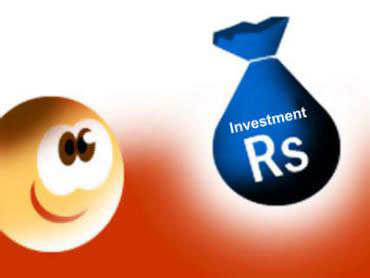 | « Back to article | Print this article |
11 IPOs to hit market in Sept; some dos and don'ts!
People planning to invest money in primary market would have a number of choices to park their savings this month, as about a dozen of companies are expected to bring out their IPOs in September.
As many as 11 small to medium scale companies, including tutorial service provider Career Point and entertainment and media firm Eros International, are preparing to launch their initial public offerings this month, merchant banking sources told PTI.
The companies, which are planning to come out with their IPOs include Indosolar, Commercial Engineers, VA Tech Wabag, Ashoka Buildcon, Electrosteel, You Broadband and BS Transcom.
'All these companies are trying to hit the market before September because otherwise they will have to re-file the June quarter financial results with the capital market regulator Sebi. Till September, they can go with March quarter financial results,' said a person involved in a number of these IPOs.
However, independently, these firms could not be reached for comments on their expected time frame to hit market.
'The huge response received by several issues in recent times is also an encouraging factor for these companies to cash in the opportunity,' said a merchant banker.
Click NEXT to read on . . .
11 IPOs to hit market in Sept; some dos and don'ts!
Recently, the public issues of a number of entities including SKS Microfinance, Prakash Steelage Ltd and Gujarat Pipavav Port Ltd got huge response from investors and were oversubscribed. Listing of these firms was also stellar.
The follow-on public offer of the state-run Engineers India Ltd has also received a robust demand from investors. Corporate India raised over Rs 47,800 crore (Rs 478 billion) through the public offers during the fiscal 2009-2010, a period during which the stock market benchmark Sensex gave a handsome return of over 80 per cent.
Apart from some big initial public offers such as that of JSW Energy and Adani Power, the fiscal also saw divestment of the government's stake in NMDC and NTPC through the follow-on offers.
According to an analysis, about 44 companies -- including PSUs -- raised Rs 47,867 crore (Rs 478.67 billion) during the April 2009 to March 31, 2010 period.
Click NEXT to read on . . .
11 IPOs to hit market in Sept; some dos and don'ts!
For those who are planning to leap into the IPO market, here are some dos and don'ts. So check out . . .
1. The promoters' background: This is by far the most important element. However good the product, technology or market, it is the promoters who run the company. Find out about their track record, their other interests, performance of other group companies and the relationship between these companies.
2. The company's balance sheet: If you want to be an investor, it's time to start reading and understanding a balance sheet. Pay attention to the topline and the bottomline, major variances; but most importantly, consider carefully the extraordinary items and notes to accounts. It's quite possible for a company to derive its revenues not from its main business, but from smart accounting entries.
3. Risk factors: Though risk factors are not very clearly spelt out, a careful reading would still give enough information of the downsides. Try to do an impact analysis of the critical risk factors.
4. Shareholding pattern: It is important to know who the major shareholders of the company are and what their shareholding pattern will be after the issue. A huge promoter stake is not too desirable.
If a company has institutional investors as its shareholders, it means that a lot of due diligence has already been done on the company. Try to find out at what prices these pre-issue allotments have been made, and to whom and when.
It is also important to look at what the possible shareholding pattern will be after the issue.
Click NEXT to read on . . .
11 IPOs to hit market in Sept; some dos and don'ts!
6. Value, not price or par: An offering at the face value of Rs 10 is not necessarily cheap. The 'par value' system often gives you the impression that no premium is being charged.
But it's possible that such issues may not even be worth the par value; in such cases, the par pricing could actually mean an inherent premium. Also, beware of another malaise: of some companies who offer shares by reducing par value to make their offer prices look more attractive.
7. The issue objective and corporate actions: You certainly couldn't have forgotten the huge incidence of 'vanishing' companies which, in fact, were cases of 'vanishing' funds. It is important to find what the company plans to do with the issue funds.
Is the issue for general corporate purposes, or to finance a new project or for an expansion/diversification project? Or is it for retiring debt? Look carefully at all corporate actions like dividends, bonus issues and mergers/acquisitions.
8. Compliance record and litigations: Find out whether group companies have been diligent in filing their returns to various bodies such as the stock exchanges and registrar of companies.
The prospectus will disclose all major litigation cases filed against the company's directors and promoters, as well as against group companies. Avoid companies that are deeply mired in litigations.
Click NEXT to read on . . .
11 IPOs to hit market in Sept; some dos and don'ts!
9. Dues and disciplinary action: Check for outstanding dues and defaults to lenders and depositors. Indian promoters do have a reputation for defaulting, many times 'wilfully'.
It is also important to see if there have been any disciplinary actions taken by SEBI, stock exchanges and other regulatory body against the company or its directors/promoters.
10. Underwriters and investment bankers: Underwriters add to the issue's strength. An underwritten issue today does not denote weakness requiring an underwriting support, it shows that there are intermediaries who after assessing the risks have decided to back the issue.
Also, before investing in an issue, look at the names of its investment bankers and check out their past track record.
Click NEXT to read on . . .
11 IPOs to hit market in Sept; some dos and don'ts!
Don't be guided by. . .
1. Market prospects: Any prospectus will describe the market potential in superlative terms. Do not be misled by those numbers mentioned in the offer document.
2. The brands or corporate image: First of all, remember that you are investing in the company, not in a brand. A company may have a hugely popular brand, but may be bleeding financially.
Moreover, a high-flying company may still be a risky or losing proposition if its issue has been aggressively priced.
3. Hype or loose talk: In buoyant times, the capital market is frequently the subject of discussion at parties. Do not be influenced by this. Besides, there may also be tonnes of uninformed advice that will come to you from friends and relatives.
Click NEXT to read on . . .
11 IPOs to hit market in Sept; some dos and don'ts!
4. Greed: Do not bet your last penny on new issues. Do not borrow money or sell other assets or worse, divert your business funds into new issues.
5. Sebi approval: The approval of an IPO by the markets regulator is not a certificate of good quality. Most guidelines are very straight-jacketed. It's all too easy for companies to comply with these guidelines, at least on paper, if not in spirit.
As an investor, you must remember that equity, by its very nature, is a risk-laden instrument: it is because of this very fact it holds the promise of higher rewards. Is should not be misconstrued as 'guaranteed return products'.
You can only minimise your risks, and that can be done by sticking to good companies.
Again, IPOs floated in buoyant times are more riskier since investors typically chase price and not value in such times.
Many bad companies or high priced issues are floated in such times. The good news is that in the present spate of offerings, most of the issues are divestment-related.
The pricing is bound to be conservative and, therefore, does hold opportunity for gains. Moreover, in dismal times like these, only companies with good fundamentals, and willing to consider conservative pricing, will dare to make a foray into the PI market.






